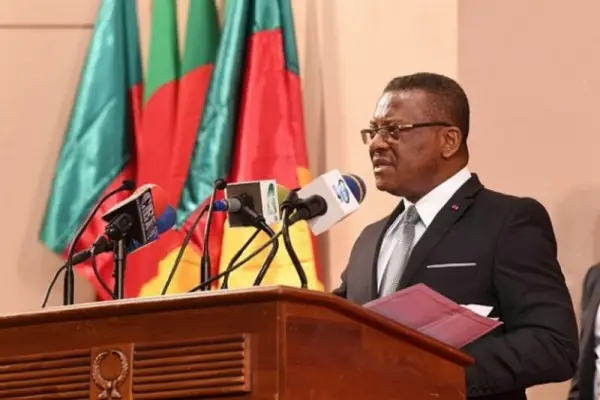It is near 7:30 (6:30 GMT) at the public school of Olembé, in the first district of Yaounde, Alain 4 years old, kindergarten student, smiling at the arm of his mother, seems happy to cross for the very first time the portal of a school. His parents enrolled him in Group II A at Olembé Public School.Three other students get off the taxi who drops them in front of the gate. Aged 6 to 9, they are from the Telep family. They say they can not wait to get back to school. They quickly join their comrades in the yard they call by name.At Olembe Public School, students are in the classrooms. The first classes are taught.More apprehensions among Ndongo whose parents have not yet finished with the puzzle of the back to school, "I came to negotiate the enrollment of children," says Charlene Ndongo, met earlier this morning in high school. Emana.Back to school is a headache for many parents and students, like Ondoua who comes to meet the principal of the school for his children.This new school year 2018-2019 brings a lot of changes. It has been placed by the government under the sign of reforms.reformsThe Prime Minister has launched a series of reforms, the most resounding of which is the single book.The head of the government put an end to the multiplicity of the textbooks for each subject and the changes of the books at the time of the return.Henceforth, any discipline enrolled in the school curriculum on Cameroonian territory, will be dispensed only by means of a single book by subject.For this first experimental year, the books of which almost 80% used in Cameroon, are manufactured in Turkey and China, will be massively delivered by one or two months, says one to the Ministry of Secondary Education.Another reform, the introduction of electronic payment of tuition fees through the financial services of Orange (Orange Money), MTN (Mobile Money), Express Union (Union Mobil Money Express) and Campost Money.The purpose of this reform is to limit the diversion of school fees and corruption in schools.Half-tone returnThe start of the 2018-2019 school year does not come under better auspices in the North West and South West regions, shaken by the Anglophone crisis since October 2016.Several schools were destroyed there. Teachers, whole families under the threat of separatists have deserted the localities in the grip of armed clashes.The Minister of Basic Education is in the North West region to reassure herself of the effectiveness of back to school in this part of the country.UNICEF and UNESCO condemned the attacks and abductions of students and teachers by the separatists.In the same vein, the patron of secondary education is in the Far North region, which has been suffering from the horrors of the war against Boko Haram since 2014.In addition, the Far North region is strongly marked by school dropout.

